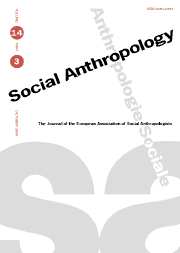No CrossRef data available.
Introduction: Between Cameroon and Cuba: Youth, slave trades and translocal memoryscapes
Published online by Cambridge University Press: 24 February 2006
Abstract
The past is not simply a present seen from the vantage point of its own futurity, but rather a social construct that only emerges referentially and selectively, inevitably formed and transformed by means of re-experience and interpretation. As Jan Assmann (1992) outlines, cultures of remembering represent the technologies by means of which we elaborate meaningful constructs from the experience of the past. Thus, while the past may structure the present to some extent, memory allows us to structure the past in relation to the present. This is not to say that we are free to mould history to our taste. To the contrary, the fact that we often cannot access the past again in any direct referential manner once it has been lived implies that it may gain an influence over us that escapes the normal mechanisms of remembering, objectification and forgetting. In this light, the slave trade is not only an empirical set of events from which we are shielded by the apparently unbridgeable distance of chronological time, but – in its untold horror and its traumatic impact – it is also a social reality that still reverberates on both sides of the Atlantic; an ineffable past–present, often elided from explicit discourse but insistently recurring in manifold non-discursive performative genres. European culture emphasises ‘memory work’ as an explicit means of coming to terms with traumatic pasts, allotting responsibility and expiating guilt as a means of achieving closure, while the American descendants of African slaves continue to revitalise inherited, remembered and reconstructed ritual practices and to elaborate a verbal discourse on the African origins of the Atlantic diaspora. But Africa itself remains doggedly silent on the issue of slavery.
- Type
- Special section
- Information
- Copyright
- Cambridge University Press 2006




